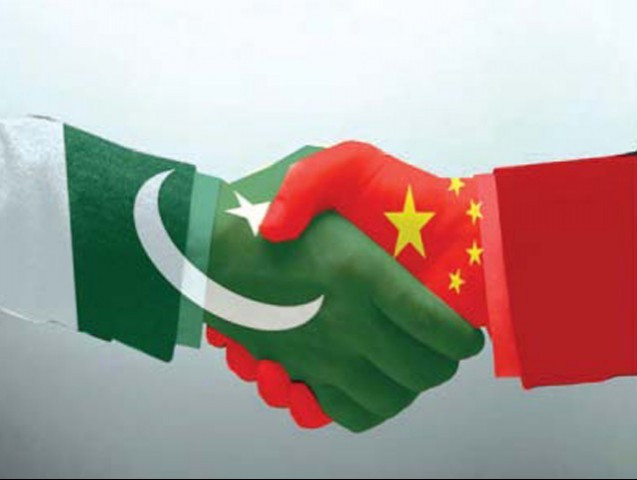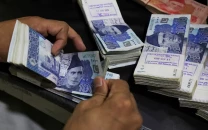Does Pak-China economic ties need to be refined?
Anti-China-Pak forces launched propaganda, and it persists because economic relations have failed to meet expectations

The Pakistan-China relationship is unique and multidimensional. It covers almost all areas, but security, defence, diplomatic, and economic aspects dominate the rest. History shows the relationship has performed exceptionally well in defence and diplomacy. A closer look reveals that success in these fields depends on three key elements or rationales.
The security, diplomatic, and defence relationship is built on three elements: geostrategic, geopolitical, and shared values. Careful analysis shows these provide a strong foundation. In the words of President Xi, this has cultivated a brotherly, formidable, and resilient relationship. It can withstand any situation, and both countries can trust each other blindly. The recent war between Pakistan and India reinforced this fact.
At the same time, leaders of both countries strengthened their economic ties. They signed many agreements, including the Barter Trade Agreement of 1963, the Machinery and Technical Support Agreement of 1966, the Trade Protocol of 1975, the China-Pakistan Border Trade Agreement of 1985, and the Technical and Financial Assistance Agreement for the Saindak Mining Project of 1984. In 1989, they signed an agreement to protect bilateral investments. This paved the way for Chinese firms like Huawei, Zong, and Haier to enter Pakistan. The next major development was the China-Pakistan Economic Corridor (CPEC), a transformative economic initiative.
Continuing this spirit of cooperation, a new action plan was announced after President Xi's meeting with Prime Minister Sharif. It focused on boosting collaboration across many fields, especially the economy. This shows that China and Pakistan are further strengthening ties. However, after the meeting, anti-China-Pakistan forces launched new propaganda. The question is, when relations are so deep and built on trust, why does propaganda exist? Why do rumours find a place? Why do they attract people's attention? Analysis provides several reasons.
The propaganda persists because economic relations have failed to meet expectations and potential. Cooperation often began with promise but lacked momentum. The most recent case is CPEC. Despite its transformative nature and vast opportunities, Pakistan has attracted only $28 billion in investments. This is small compared to the potential and available opportunities.
The main reason for low utility of opportunities is Pakistan's poor implementation. The country kept signing MoUs and agreements, but execution remained uncertain. For example, we signed the Investment Protection Act in 1989 but failed to attract many Chinese companies. The Free Trade Agreement and Energy Framework of 2006 also disappointed due to weak execution.
CPEC is the most notable case. Pakistan could not implement the long-term plan as agreed. It was decided Pakistan would build Special Economic Zones (SEZs) to accelerate the second phase of CPEC and industrialisation. After 12 years, only two SEZs are in advanced stages and operational.
Pakistan also failed to comprehend China's evolving role – its new status, and its role at the global level. We are still stuck with the old China of the 1960s, 70s, or 1990s. Many equate CPEC with the air corridor Pakistan provided in the 1960s. But they forget that back then, China was diplomatically isolated and had limited options. Today, China is a global power, especially in economy and trade.
In the context of CPEC, the second phase of the BRI differs from the first. It emphasises smaller, impactful projects rather than large-scale investments. It targets initiatives with direct and immediate community benefits. President Xi announced that the China Development Bank and Export-Import Bank of China will provide $48.75 billion for small, innovative livelihood projects. BRI's new focus requires Pakistan to develop new plans and programmes that can attract funding aligned with this new direction.
Against this backdrop, Pakistan needs to refine, if not reset, the economic relationship. To start, two things are crucial. First, Pakistan should learn from the defence and diplomatic relationship. What were the rationale and factors that built it? Second, Pakistan needs highly skilled professionals with deep understanding of Chinese systems and policies. The success of military and diplomatic cooperation shows the value of professionalism and the right person for the job.
A team of professionals should conduct a critical analysis of the economic partnership. Their work should include several points. First, they must examine how the era of economic mobilisation has shaped China's system. They should study how China's economy evolved, gained strength, and developed new rules of engagement. They must understand China in the New Era and its foreign policy. For example, after the 1978 reforms, cooperation changed profoundly. Economic rationality became the main factor in engagement. These rationales follow capitalist principles, different from traditional Chinese philosophy. The team must suggest how Pakistan can adapt to these new dynamics.
Second, they must examine the BRI's objectives and the place of CPEC within its framework. While CPEC is a flagship project, it is only one of six BRI corridors. Pakistan is just one of 153 BRI members. These countries compete for investment and trade. Many have better supply chains, more competitive SEZs, and more favourable business environments. Pakistan must rationalise expectations and design policies based on facts.
Third, they must analyse the mismatch between Chinese and Pakistani business groups. This is another reason for slow business-to-business linkages in CPEC's second phase. Chinese firms are much larger than Pakistani ones. One option could be to use Pakistani state-owned enterprises to match the scale of Chinese companies.
China, too, must examine Pakistan's economic and developmental situation. This is vital, given Pakistan faces its worst economic crisis, and terrorism has reemerged. China should also analyse the international pressures Pakistan faces, which have created multiple challenges. This would help China decide whether Pakistan's current conditions allow it to apply strict economic rationality in investment decisions, or if a more considerate approach is needed.
THE WRITER IS A POLITICAL ECONOMIST AND A VISITING RESEARCH FELLOW AT HEBEI UNIVERSITY, CHINA





















COMMENTS
Comments are moderated and generally will be posted if they are on-topic and not abusive.
For more information, please see our Comments FAQ